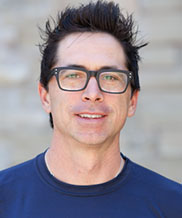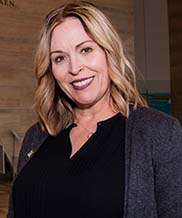Flying Without Co-pilots: Opportunities to Bridge Gaps in the Support Ecosystem for Children with Autism – Session 1
Three Day Workshop, 3:00pm-5:00pm (Pacific)
January 12th, Building Together: At Home and in the Community
January 19th, Growing Together: Training and Professional Development
January 26th, Informing Each Other: Information, Data, and Processes
How might we conceptualize an ecosystem of support for children with special needs (ASD in particular) in order to make changes that will result in closing the gaps of a broken ecosystem?
Children with special needs benefit from assistance and support from a variety of people, including teachers, aides, behavior technicians, occupational therapists, and most especially, their parents or immediate caregivers. Providing learning opportunities to a child with special needs requires an ecosystem of support, with each participant understanding the interactions and goals of their counterparts and serving as agents for the whole child. In many cases, the phrase “it takes a village to raise a child” resounds with greater emphasis for individuals with special needs.
Unfortunately, the current system places service providers in silos with little cross communication. Inside this ecosystem, organizations and professionals might have the best intentions, yet not receive the cooperation needed to make their work successful. In addition, these various service providers and groups often have incentives that do not align. It generally falls to parents and caregivers to manage communication between the parties, while simultaneously caring for their child. To respond to the challenges of the current system, a variety of approaches are underway – from new technologies that reach children in their homes to recommendations for new special education policies, to an infrastructure of training and professional development. A key element we want to explore is how infrastructure and interaction might be improved to enable better communication and cooperation with other support personnel. One area for impact is the training and certification of professionals who are working in this field of special needs support, particularly for those with autism.
To understand how we might better shape the capabilities and mindset of these individuals, and to create a more effective ecosystem, mediaX is inviting exploration into the requirements necessary to re-envision training and professional development for teachers and medical professionals working with children with special needs. What infrastructure could be envisioned to promote collaboration and communication between and among support personnel? Through perspectives on the current situation and the identification of how and where progress is being made, discussions will encourage the development of recommendations for ways in which Stanford University and collaborators might positively impact future interactions within the care ecosystem.
This workshop series will address this question:
How we might better shape the capabilities and mindsets of professionals who work in fields of autism and special needs support – teachers, medical professionals and other care givers working with children with special needs.
We hope to shine a spotlight on inflection points for the enhanced effectiveness of this ecosystem.
Using insights shared by thought leaders and perspectives brought by participants we’ll discuss and brainstorm starting points, potential roadblocks, and pathways to solutions.
In our first of three sessions:
We will explore opportunities and challenges that bridge multiple locations, including game-based therapeutics that can be used at home, how schools might serve as wellness centers, and conceptions of neurodiversity in schools, universities, and the workplace.
Presenters

Dennis Wall is Associate Professor of Pediatrics, Psychiatry and Biomedical Data Sciences at Stanford Medical School. He leads a lab in Pediatric Innovation focused on developing methods in biomedical informatics to disentangle complex conditions that originate in childhood and perpetuate through the life course, including autism and related developmental delays.
For over a decade, first on faculty at Harvard and now at Stanford University, and as healthcare has shifted increasingly to the use of digital technologies for data capture and finer resolutions of genomic scale, Dr. Wall has innovated, adapted and deployed bioinformatic strategies to enable precise and personalized interpretation of high resolution molecular and phenotypic data. Dr. Wall has pioneered the use of machine learning and artificial intelligence for fast, quantitative and mobile detection of neurodevelopmental disorders in children, as well as the use of use of machine learning systems on wearable devices, such as Google Glass, for real-time “exclinical" therapy. These same precision health approaches enable quantitative tracking of progress during treatment throughout an individual’s life enabling big data generation of a type and scale never before possible, and have defined a new paradigm for behavioral detection and therapy.

William Carter is a 2nd year Political Geography student at UC Berkeley, originally from Bristol, England, and is Autistic-Dyslexic-Dyspraxic identifying. He is a Fullbight Scholar. He studied Politics and International Relations at the University of Bristol,has spoke at the European Parliament, and received several University awards for his academic performance. He left with First-Class Honours.
In 2018, William was one of 10 young people selected to represent the 1.5bn young adults of the Commonwealth at the Commonwealth Parliamentarian Forum. He was picked by 90 of the most senior politicians from across the 54-state group to help deliver the closing remarks on the future of the Commonwealth. His research interests include the origins of racialisation in the Trans-Atlantic Slave Trade, across the three geographic contexts of the interior of the African West Coast, the Slave Ship, and the US/Caribbean Planation. He examines the processes which developed an association between Blackness and criminality, through the themes of risk, fear, and domination. He uses a conceptual history to explain the Special Educational Displacement of Black Children, as the embodiment of this much earlier association between Blackness and danger within the Trans-Atlantic Slave Trade.

Kristin Wright is the Executive Director in Sacramento County Office of Education, division of Equity, Diversity, Early Intervention, and Support Services. Kristin brings a wealth of professional and personal experience to this important position as a policy expert, a former special education student teacher, and a mother of a child with disabilities. Wright previously served as the California State Director of Special Education at the California Department of Education (CDE).
She has spent more than a decade working in education with a focus on special education and advocating for students with disabilities. Before CDE, she served as the Education Policy Advisor for Special Education, Homeless, and Foster Youth at the California State Board of Education and also as a member of the Legislative Staff at the California State Assembly. In addition to her experience in education, she also served as the Assistant Director at Volunteers of America, working with homeless programs in Sacramento County.